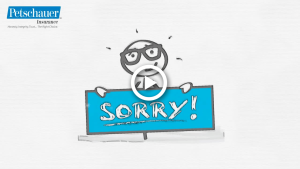How Does a “Buy Sell Agreement” Help Your Business?
 Your business is likely to be your most important asset. Many business owners are relying on this asset for retirement as well as planning to pass the business onto their children. However, this plan can be quickly derailed in the blink of eye.
Your business is likely to be your most important asset. Many business owners are relying on this asset for retirement as well as planning to pass the business onto their children. However, this plan can be quickly derailed in the blink of eye.
What would happen to the business if you or your business partner were to die unexpectedly, contract a chronic illness or have a permanent injury?
This is not something you want to think about with so much riding on your ability to go to work. Without a succession plan, a business partner can find themselves sharing ownership and operations with the deceased partner’s spouse or children. How do they find the liquidity to buy them out?
How does one replace the owner to keep the business viable and ensure future success of the business?
If the spouse relies on the business for their retirement income, where does this leave the spouse financially?
All too often, families discover too late that their businesses were built on a house of cards.
According to the Conway Center for Family Business, 80 to 90 percent of U.S. businesses are family owned, yet less than a third of these companies succeed into the second generation. Less than a tenth make it to the third generation. According to a Price Waterhouse Coopers report, a whopping 47 percent of companies have no succession plan in place.
Given the volatility of the economy and local industry, it comes as no surprise that small business owners focus their energy on the survival and future growth of their enterprises.
Having a succession plan is essential to maximizing the value of your business for your family.
A Buy Sell agreement is a key component in this plan. This is an arrangement that outlines what happens to the business in the event that an owner retires, sells their shares, passes away, or becomes disabled.
However, the Buy Sell agreement is not complete without a means to fund the transfer of ownership. In the case of a death or disability, the most cost efficient way is often to fund the transfer through a Life and Disability insurance policy. For example, if a partner were to die, the insurance policy would pay the surviving partner(s) the death proceeds to “buy out” the estate of the deceased owner. In doing so, the decedent’s family is compensated for their stake in the business, while the surviving partners absorb full equity of the business with little to no financial burden, if funded correctly.
Once established, a Buy Sell agreement and the insurance policies to fund the agreement need to be updated to account for the changes in business valuation and ownership. Contact us today to discuss the scenario for your business.
* The examples in this post are intended to educate the reader generally about the benefits of life insurance, through the use of hypothetical “details” including coverages, cash values and premium costs. These are approximations based on the author’s experience, but are not facts that would necessarily apply to the reader’s own situation or to that of any other person. Reliable information regarding such items as coverages, cash values and premium costs may only be obtained through formal communications with your broker.









